Meeting Report
The meeting was co-hosted by Kazakhtelecom and the Internet Association of Kazakhstan, with sponsorship for coffee breaks from the Global Forum on Cyber Expertise (GFCE).
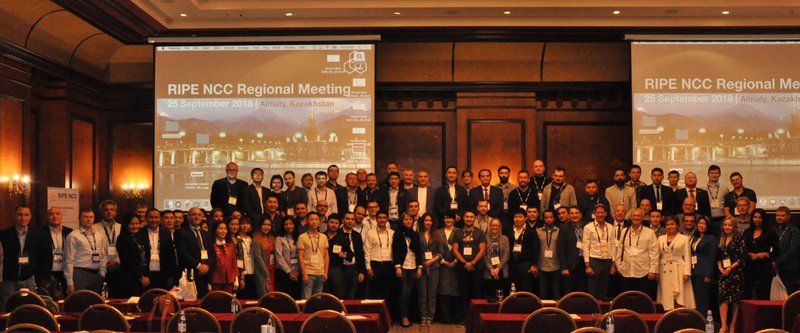
The last RIPE NCC Regional Meeting in Almaty took place back in 2014 with a little over a hundred attendees checking in from six countries. This time, two hundred attendees checked in from nineteen different countries, a clear indicator of the rate at which the Internet community in Central Asia is developing.
The goal for the day was to bring together RIPE NCC members, local governments, key players in the global and local Internet industry and RIPE NCC staff to discuss issues facing the Internet community in Central Asia and to look at how the RIPE NCC can help support the development of the Internet in the region.
The meeting opened with welcome speeches from Paul Rendek (RIPE NCC) and Shavkat Sabirov (Internet Association of Kazakhstan) who thanked all present for making it to the meeting and outlined their ambitions for the day ahead. 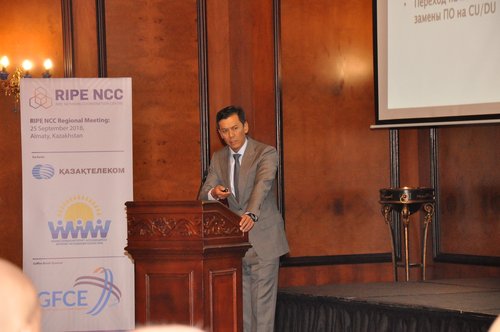 Nurlan Meirmanov (Kazakhtelecom) also welcomed attendees and gave a presentation outlining Kazakhtelecom’s outlook on digital transformation and prospects for the introduction of 5G.
Nurlan Meirmanov (Kazakhtelecom) also welcomed attendees and gave a presentation outlining Kazakhtelecom’s outlook on digital transformation and prospects for the introduction of 5G.
Paul Rendek went on to give a detailed overview of developments in the region from the perspective of the RIPE NCC. He talked about rapid growth in the number of Internet users in Kazakhstan and surrounding countries and looked at how the RIPE NCC is supporting that growth through training events, meetings with the community, and support for the development of local IXPs. Christian Teuschel (RIPE NCC), drawing on statistics available through RIPEstat, gave a detailed report on Internet usage in each of the Central Asian countries, discussing growth in the region in the context of population, IPv4 address space usage, and broader economic factors.
Many local stakeholders took the opportunity to discuss the opportunities and challenges they are encountering. 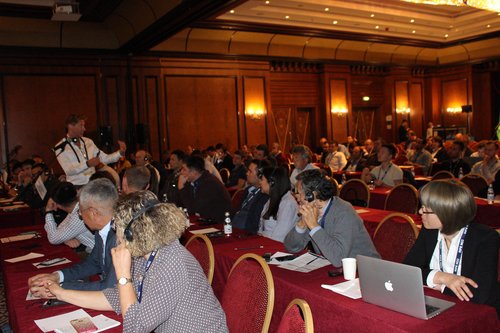 A panel tasked with discussing a range of technical issues like 5G, the deployment of next generation networks, IPv6 and the IoT brought together key stakeholders from Kazakhtelecom, Megafon Tajikistan, the Internet Society’s IoT SIG, Cluster Networked Infrastructures, and the RIPE NCC. The speakers, and the subsequent discussion, touched on a variety of challenges, such as the need for the coordinated development of strategies and guidelines for implementing IoT solutions through 5G technologies, and the more general issue of driving IPv6 deployment in the region.
A panel tasked with discussing a range of technical issues like 5G, the deployment of next generation networks, IPv6 and the IoT brought together key stakeholders from Kazakhtelecom, Megafon Tajikistan, the Internet Society’s IoT SIG, Cluster Networked Infrastructures, and the RIPE NCC. The speakers, and the subsequent discussion, touched on a variety of challenges, such as the need for the coordinated development of strategies and guidelines for implementing IoT solutions through 5G technologies, and the more general issue of driving IPv6 deployment in the region.
Maxim Burtikov (RIPE NCC) delivered a talk on the RIPE Policy Development Process (PDP), looking at the RIPE community, the importance of broad participation in the PDP, and rising engagement from the law enforcement community in this area.
The meeting agenda was a full one with a further nine talks and a second panel discussion scheduled after lunch. Hisham Ibrahim (RIPE NCC) looked at the importance of building local Internet communities and the benefits to be gained from bringing together more Network Operator Groups across Central Asia. Four RACI talks also took place, presented by speakers from Kazakhstan, Russia, Armenia and Germany, showcasing research being carried out across various sectors for improved security and network operations.
The second panel session, a GFCE Triple-I event aimed at promoting trusted use of Internet and email in different regions, gave panelists an opportunity to share their views on Open Internet Standards and how they can help increase security on the Internet. In a remote presentation from the Netherlands, Aiko Pras (University of Twente) took the audience step-by-step through work being done by a consortium of Dutch critical infrastructure operators to fight DDoS attacks. The session closed with a talk on new challenges in Internet hosting in Kazakhstan from Denis Sukhachev (Hoster.kz LTD).
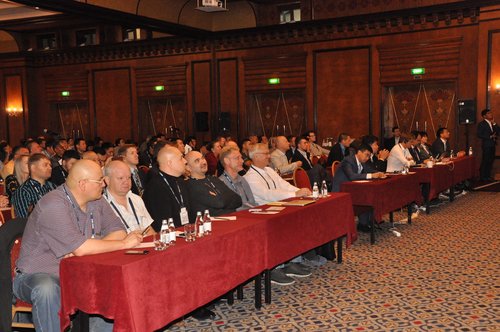 Audience engagement at the meeting was strong, and local attendees were keen to talk about support for improving the quality of Internet services and local infrastructure, particularly through further development of IXPs in Kazakhstan and the rest of Central Asia. They also wanted to know more about avenues available for developing stronger relations between the local community of network operators and other relevant stakeholders and the wider Internet community.
Audience engagement at the meeting was strong, and local attendees were keen to talk about support for improving the quality of Internet services and local infrastructure, particularly through further development of IXPs in Kazakhstan and the rest of Central Asia. They also wanted to know more about avenues available for developing stronger relations between the local community of network operators and other relevant stakeholders and the wider Internet community.
Paul Rendek closed the meeting with an encouragement for everyone at the meeting to take part in future RIPE NCC-organised events, 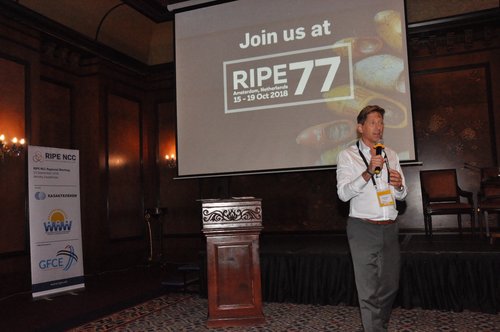 in Central Asia and beyond, including the upcoming RIPE 77 Meeting in Amsterdam, the Netherlands (15-19 October 2018), SEE 8 in Sarajevo, Bosnia and Herzegovina (16-17 April 2019), and ENOG 16 in Tbilisi, Georgia (3-4 June 2019). Paul also reminded the audience of the RIPE Fellowship and ENOG Fellowship programs, both of which provide basic support for those wishing to attend these meetings.
in Central Asia and beyond, including the upcoming RIPE 77 Meeting in Amsterdam, the Netherlands (15-19 October 2018), SEE 8 in Sarajevo, Bosnia and Herzegovina (16-17 April 2019), and ENOG 16 in Tbilisi, Georgia (3-4 June 2019). Paul also reminded the audience of the RIPE Fellowship and ENOG Fellowship programs, both of which provide basic support for those wishing to attend these meetings.
All presentations from the meeting are available to download.